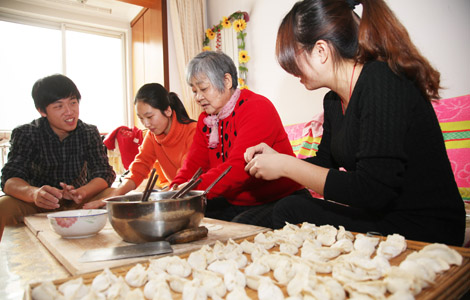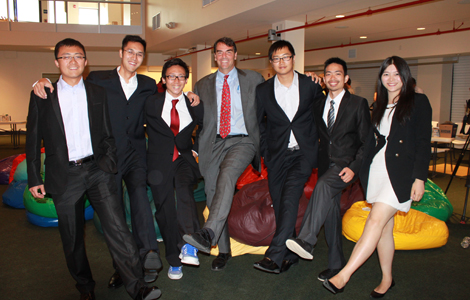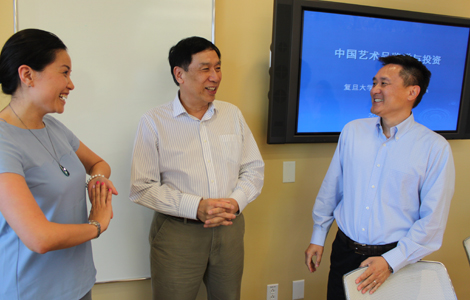Mall developers trying to dazzle picky shoppers
Updated: 2013-08-06 06:47
By Wang Ying and Xu Junqian in Shanghai (China Daily)
|
||||||||
The restaurant, opened by a former Shanghai office worker, is not the first and probably won't be the last to offer the experience of "organic" foods and a "return to nature". That's especially attractive with the problem of food safety becoming a national, if not international, concern.
But Urban Harvest has gone beyond words by taking some real action, bringing the "nature" and "organic" aspects of eating and food preparation into the view of diners.
"The appearance of K11 Art Mall has played a significant role in upgrading the neighborhood commercial atmosphere, and led to a rent increase at nearby retail properties," said a report from property consulting firm Knight Frank.
Zhang Yu, who runs a baking studio in the mall, said her studio is seeing "twice as many customers as other branches in the city", although the K11 branch was the last to open.
The studio Zhang works at, ABC Cooking Studio, is a Japanese bakery-like store teaching clients how to make bread and cakes. Courses are mainly offered by membership, costing 1,000 yuan ($163) to 20,000 yuan each.
"I cannot say how many customers are brought in by the pigs...but there is definitely an uninterrupted flow of customers every weekday and weekend," Zhang said.
K11 is one of the new projects that has made a clear effort at finding a unique position. Another mall has sought to combine shopping with art in a quest to deliver sensuous comforts to consumers. L'Avenue in Changning district has focused on luxury brands, positioning itself as the anchor store of Shanghai.
Another example of positioning is the Japan-based Takashimaya Department Store, situated in the city's East Asian expatriate area of Gubei, which introduced many brands to Shanghai for the first time. The store primarily serves foreigners.
"Focusing on their unique positioning and making good use of their own characteristics will help retail properties realize their strong potential and enable the retail market in Shanghai to have healthy development in the future," said Andy Zhang, managing director of Cushman & Wakefield China.
The quest for the mall experience is not unique to Shanghai. China Vanke Co Ltd, the nation's largest property developer by market value, owns about 6 million square meters of commercial projects in 52 cities, of which 18 are malls, according to Xinhuanet.com.
Unlike residential property, which is easily affected by government policy, and the office market, which is influenced by macroeconomic conditions, malls will experience robust growth in China as domestic consumption is being viewed as a main driver of the country's economic growth, said Joe Zhou, head of research for Jones Lang LaSalle East China.
"With the nation's average income growing year after year, demand for shopping malls will rise rapidly among better-off middle-income consumers," said Zhou.
Location, location, location
But analysts also caution that the race to invest in shopping centers may lead to a short-term surplus if the locations aren't well chosen or the tenants don't bring in the crowds.
"If all investors realize that one type of investment offers high returns, this investment will soon become highly risky with market saturation," said Xie Chen, director of research at CBRE Shanghai.
Most Viewed
Editor's Picks

|

|

|

|

|

|
Today's Top News
Obesity rate on the increase
Washington Post sold to Amazon's founder
Fonterra says sorry for 'anxiety'
Detroit Symphony brings China to NYC
Service sector drives up growth
Globalization of Chinese culture becomes hot topic
Huawei expands in London
Web 'answer to export woes'
US Weekly

|

|













